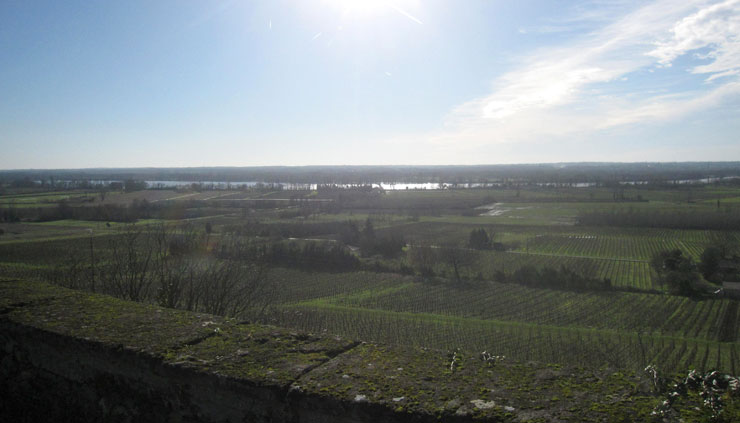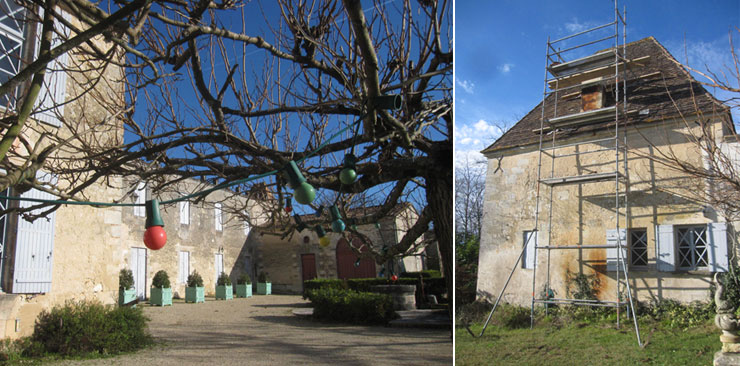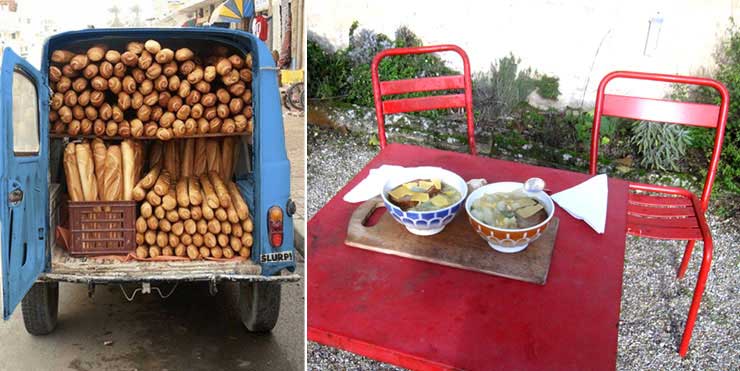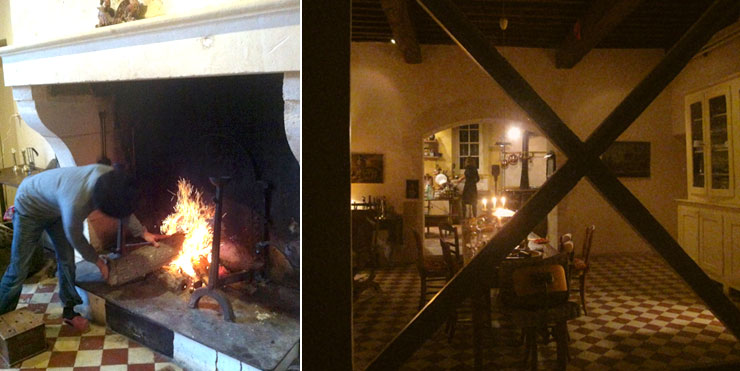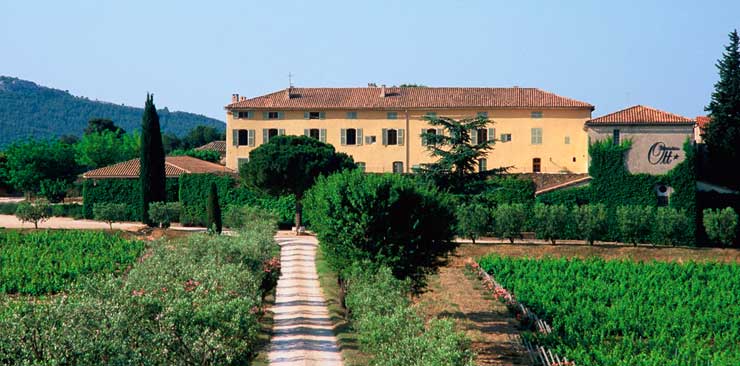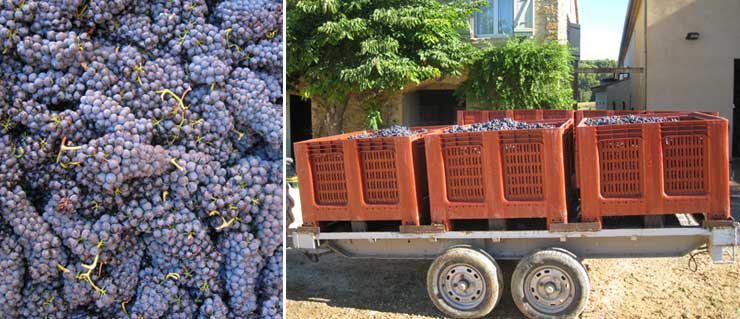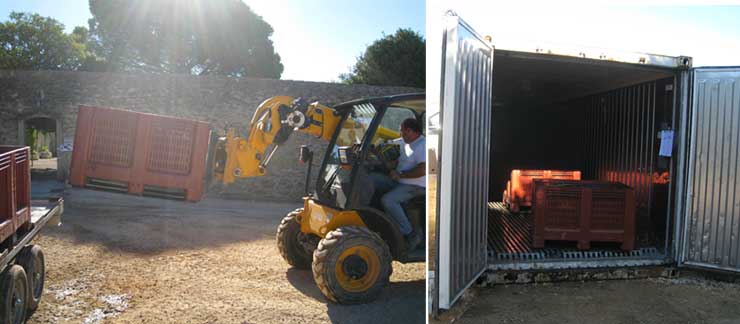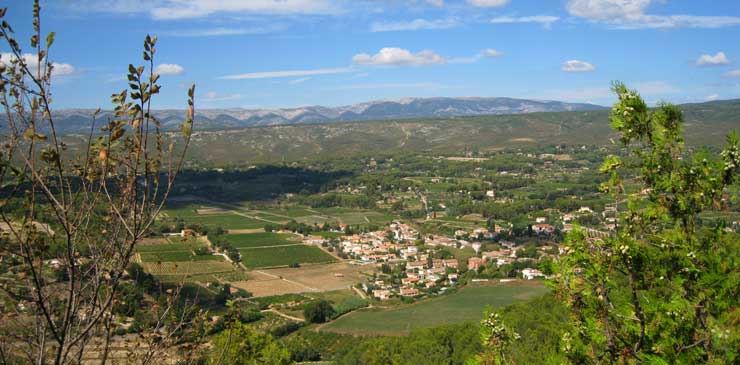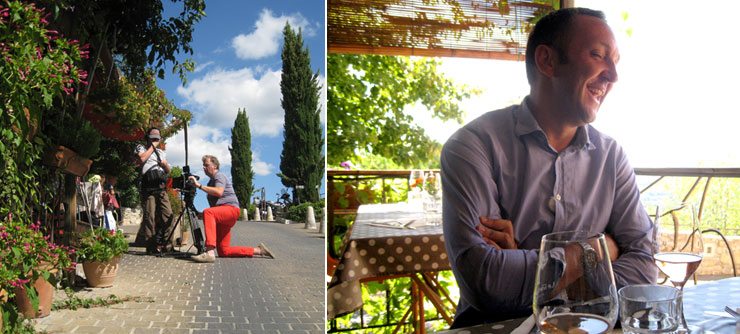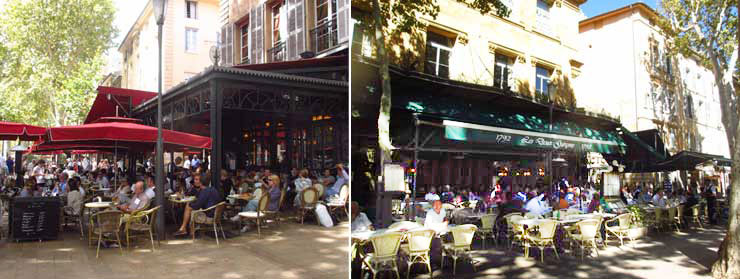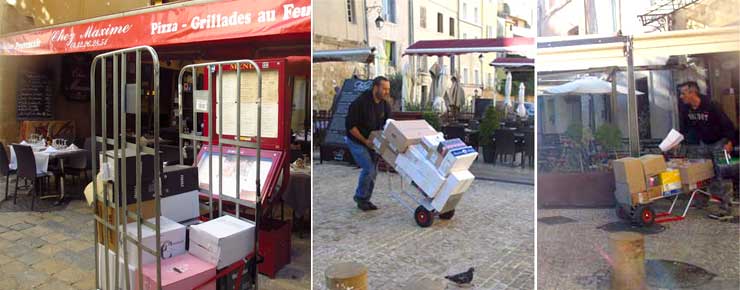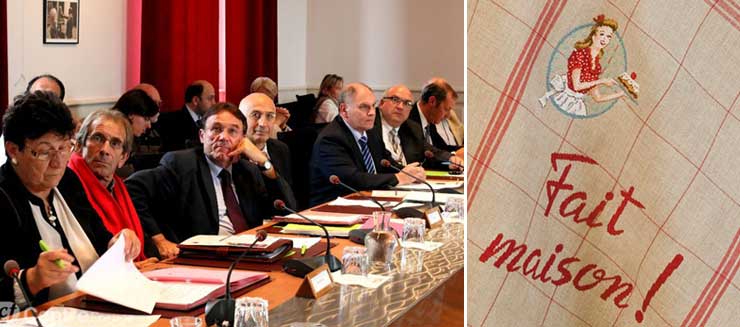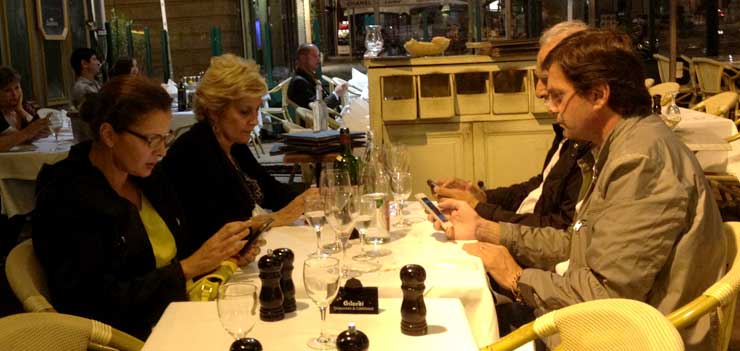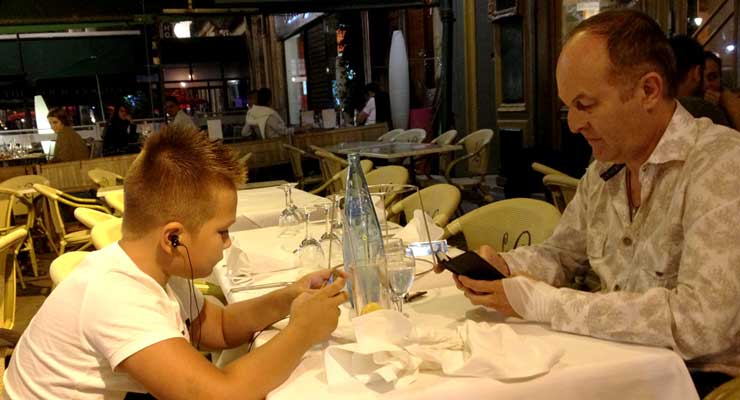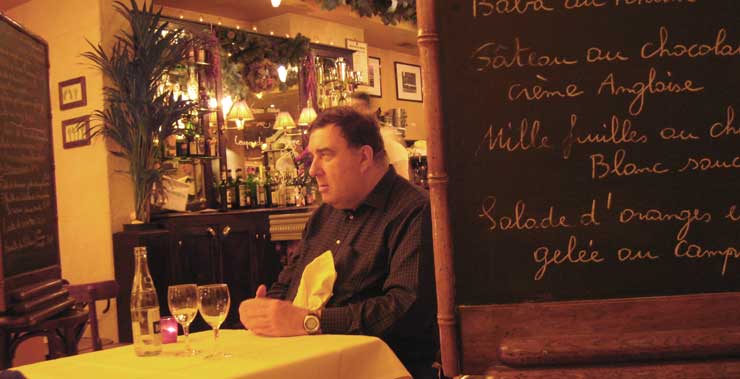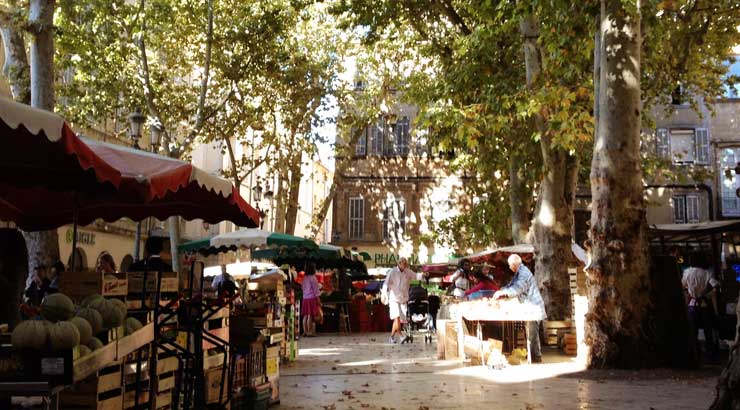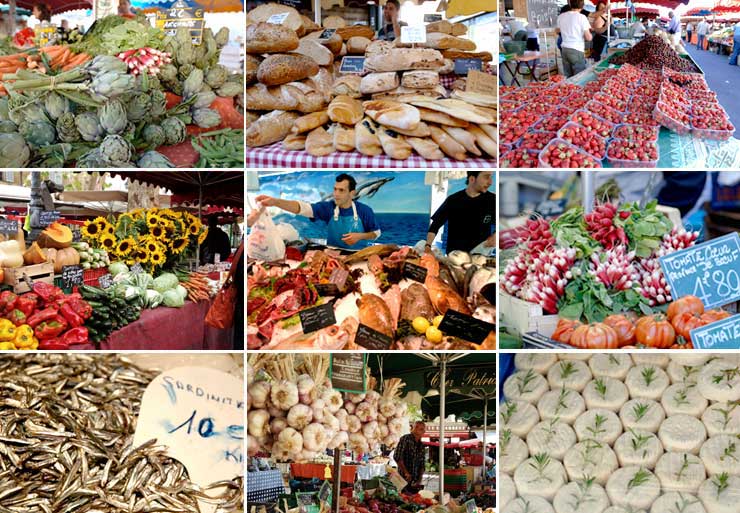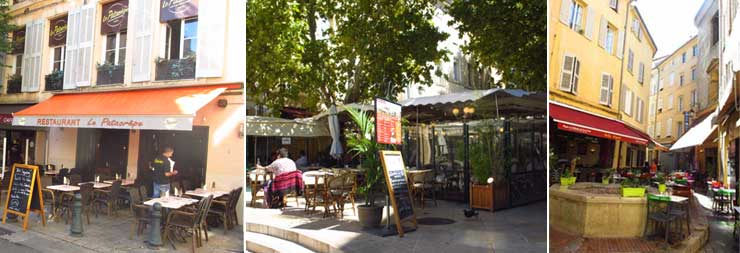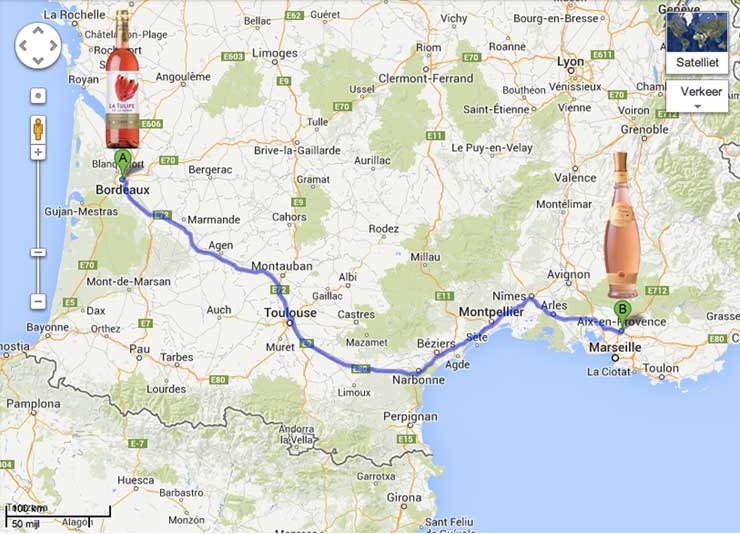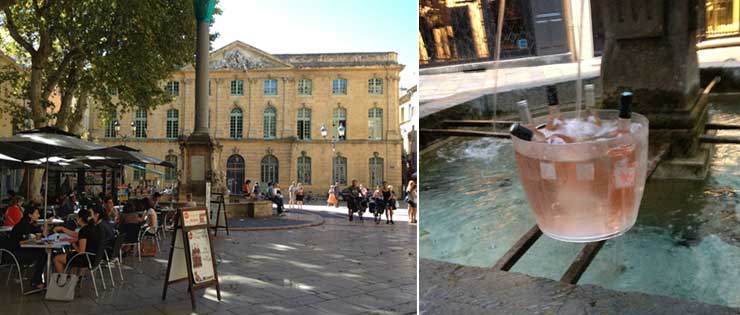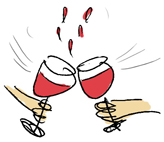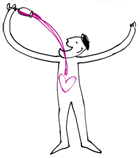if the Slurp! isn't displayed properly, click ici |
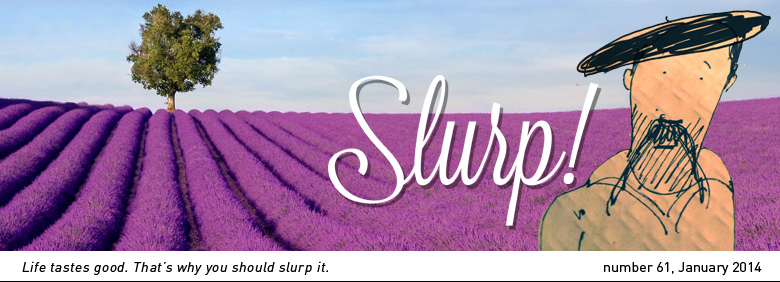
Allô, allô, Bonjour!
A new year has begun. But last year's events are still bouncing around exuberantly in my brain. Especially during the recordings of the TV show Wijn aan Gort (Wine according to Gort), we collected a lot more experiences than we could show in the 25 minute program. So we'll treat you to a glance behind the scenes.
Allez, on y va!
|
|
|
Nothing much is happening in the vineyards at the moment. The vines are hibernating, the wine quietly ripening in its barrels. In the distance, a pale wintery sun casts a vibrant shimmer above the heads of the fish, on the surface of the Dordogne. |
It's quiet; even the birds are keeping mum. Perfect time to tinker a little with the Château. |
The wineboer's lover heads out for a fresh baguette and in the afternoon we sit outside in the sun and slurp a cup of Soupe à l'Onion (cliquez ici for the recipe). |
When, at the end of the day, the sun sets out on her journey to tomorrow, we chuck a log onto the fire and bolt the door; we're all set for the long evening. |
In spite of the change of seasons, it seems a mere handshake ago that we left our beloved Bordeaux region for the Provence to film an episode on Rosé for our show Wijn aan Gort. |
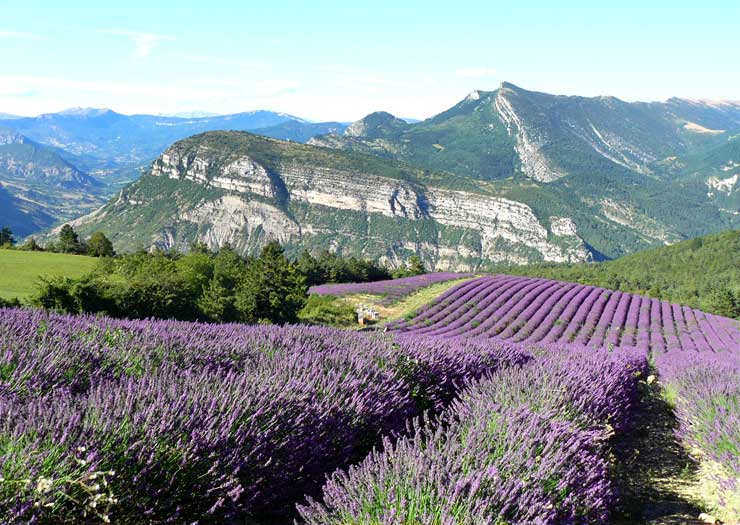 |
We're whizzing through the country that brought Vincent van Gogh both immortality and insanity. Well, I can empathise with that. The landscape is just too romantic to be comprehended by the cognitive frameworks of a Dutch "cheesehead".
And then the weather! Twice as many sun-hours as The Netherlands. And whenever it gets too hot, the Mistral takes care of a cooling breeze. And the Provencal cuisine...please stop. My mouth is flooding. |
|
All in all, not much of a surprise that the Greeks decided to conquer this paradise in 600 BC and started making wine.
Wine about which Julius Caesar would half a century later write, in his Bello Gallico: "Horum omnium fortissimi sunt Belgae, propterea quod a vinum atque cultu atque humanitate provinciae longissime absunt." Which loosely translates as: "What a delicious wine this is, and what a fantastic country. How incredibly stupid are those Belgians that they don't all move over here."
When he said Belgians he was of course referring to the Dutch (little did he know that they would be the ones to, two millennia later, swamp the area with their caravans). |
One of the toughest plasters to rip off your soul is The opinion Of Others.
"Domaine Ott? A grossly overrated table wine with the colour of sickly onions, casually knocked back by overweight men with bleach blond hair, pink polo shirts and gold rolexes." |
|
But a phenomenon like that is intriguing. Because if you are successful in selling an annual 640.000 bottles of such a brew, for a sum almost ten times higher than the wine your neighbour makes, you must be doing something very right.
I wanted to meet the man that was doing that. |
Jean-François
Jean-François Ott, great grandson of the founder of the Ott estate, together with his cousin Christian runs three (3) wine chateaus in the Provence. The thought of this is enough to drive me mad! Three chateaus! A guy like that must never get a moment's rest!
I am expecting a busy businessman, suited and booted, surrounded by a cloud of haughty secretaries. A stressed out manager casting continuous anxious glances at his watch during our conversation. These expectations are reinforced by the fact that, precisely on the day of our arrival, the harvest has started at all three of his chateaux; a time of year that even on one single wine chateau tends to be described with a mild shudder as 'A Mad House'. |
|
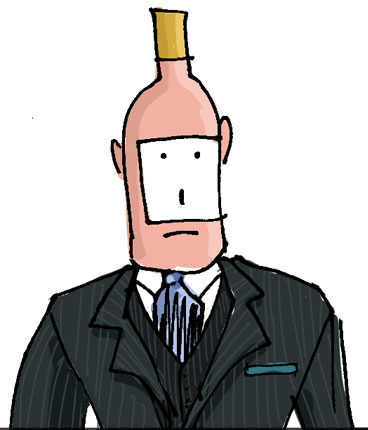
|
A man to love
But to my great surprise we are received by a gentle, relaxed man in jeans and a loose hanging shirt, who has everything under control.
Beneath the centuries old vines on his private terrace in front of the domaine we put on a friendly competition. The Ott rose versus his neighbour's. An easy target; providing my host with ample opportunity to take down his colleague slash competitor.
But the opposite is the case. Never have I heard anyone talk so respectfully of another's wine. In stead of exposing the meagre agrarian product of his adversary as rat's piss, Jean-Francois describes the wine as 'crisp with a clear palette' and upgrades the paltry brew subtly to the a 'Vin d'apéritif'. |
|
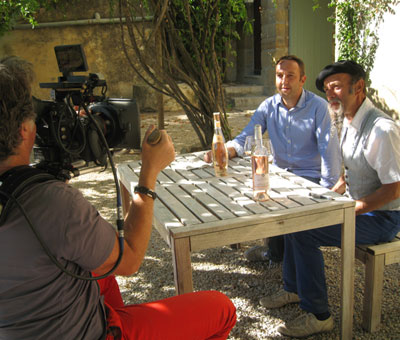
|
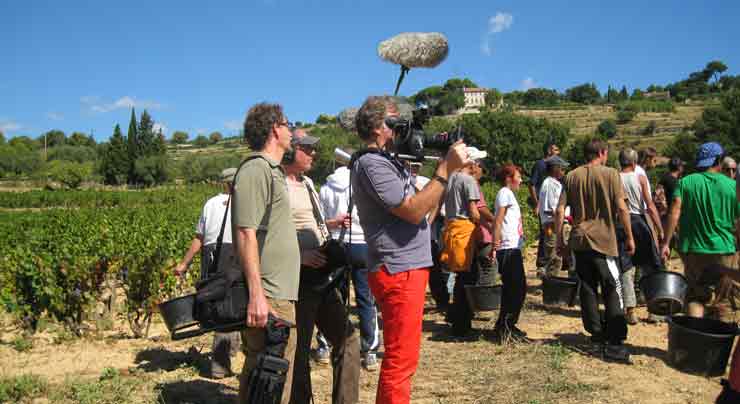 |
In answer to my question of whether he is willing to share with me the secret of his success, Jean-Francois spreads his arms wide in an all-encompassing gesture. 'Mais naturellement!' he laughs. 'Allez, on y va! Let's start in the vineyard!' |
|
The harvest kicked off at sunrise. When we get there, the sun is high in the sky. Temperatures are nearing 30 degrees, but an atmosphere of military comradeship prevails. The routing of the grapes to the wine cellar is impeccably orchestrated and the pickers indefatigably relieve bush after bush of grapes. |
The harvest is carried out with buckets and a strict selection is applied even in the vineyards. Only the most beautiful bunches end up in the pallet crates that will then be taken by high-speed tractor to the Domaine. |
Tractor driver Jo-Jo, because of his body shape also known as 'Saucis', pins the crates with casual accuracy on to his forklift and, gravel spraying right and left, rushes them into chilled containers.
(Chilled?! What new nonsense is this?! Cliquez ici) |
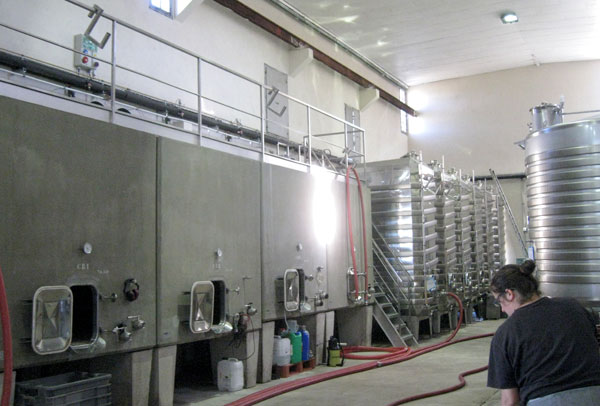 |
|
The harvest on the average wine estate is reminiscent of a mutiny on a pirate ship. Commands shouted back and forth, cursing and swearing, splashing water and leaky barrels.
But this chai is distinguished by a, I wouldn't want to say serene atmosphere, but actually the resolute way in which things are organized here does radiate something like that.
The cuves sparkle with neatness, everything is clean and in the right place and everywhere you look you see content faces. Everyone knows what to do and everyone is doing it.
This is the dream of every wine maker. |
 |
In order to unravel the essence of making rosé wine, my host and I are willing to put our lives on the line and enter into the innards of a winepress. In the glow of a portable lamp Jean-François explains how the press works in a relaxed manner. |
|
This press has a pressure capacity of 10.000 atmospheres. When Mireille outside hits the red button, the plastic sheeting will inflate and all the grapes will simultaneously be crushed against the walls.'
'So how well are you getting with Mireille?' I ask, slightly anxious. |
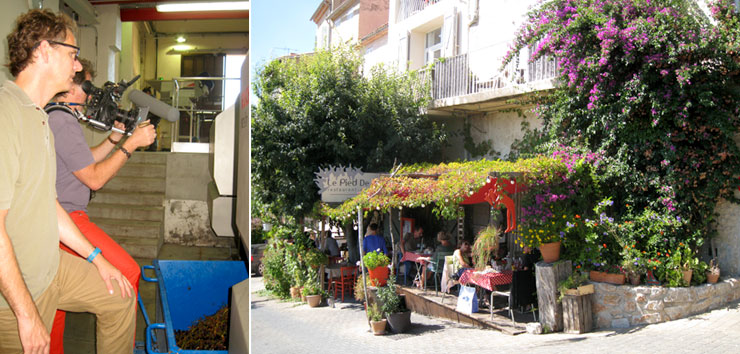 |
From a safe distance camera beast Joost and director/slave driver/mental coach Richard observe the shenanigans of the presenter. |
|
After we have seen everything there is to see I'm getting ready to say goodbye. Our host must be just about done with us, I imagine. He is a busy man and will in all probability want to get rid of us imminently. On the contrary. Jean-François takes us to his favourite lunch spot; a wildly romantic restaurant in a well hidden hamlet in the foothills of the Alpes-Maritimes... |
... with a truly breathtaking view of his own vineyards. |
In a stolen moment, with the crew busy getting the equipment ready for a next scene, the wineboer knows himself unobserved, and asks Jean-François the question that has been burning on his lips the entire day: 'Could you please teach me,' he whispers eagerly, 'how I can sell my rosé for 30 euro per bottle too?' |
 |
Cliquez ici and come slurp a glass at Domaine Ott (in Dutch)
(Cliquez on the image below) |
During the production of our Provencal reportage we stay in Aix-En-Provence; a luminous town that embraces and protects you. In the filtered sunlight, under the plane trees of the grand squares with the timeworn flagstones, you can drink a morning rosé and peruse the Var-Matin. The bourgeois buildings of yellow sandstone with mint green shutters bounce back the high-pitched squawking of the swallows and the splashing of the fountain. |
The town is intersected by the Cours Mirabeau; a wide boulevard fringed by plane trees and busy outdoor restaurants.
'I want to have dinner there!' you find yourself thinking. 'At brasserie Les Deux Garçons since 1792! It's completely packed, that must be a good sign!' Like a moray eel from a crack in the rock you dart towards the restaurant to, forcibly if need be, secure the last unoccupied table. |
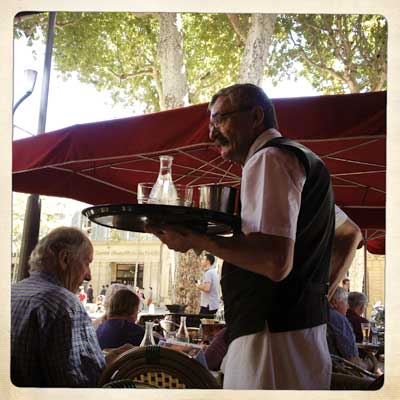
|
|
But hey, they don't move so fast in brasserie Les Deux Garçons since 1792. And why should they? The customers keep on coming either way. Here shuffle (to use the word 'work' would be inaccurate) waiters that have evolved over the centuries into restaurant fossils, and have an instinctive ability to look the other way when a guest wants to place an order.
It's a true delight to observe how they, serving tray held high, languidly like primeval tortoises, move through the crowds, all the while loftily ignoring the guests begging for attention.
But it gets worse. Because what if, through dogged tenacity, you manage to order something, what then? Well, in that unlikely event the anticipant guest is indulged with sorry prefab products that are served barely defrosted yet charred to coal. |
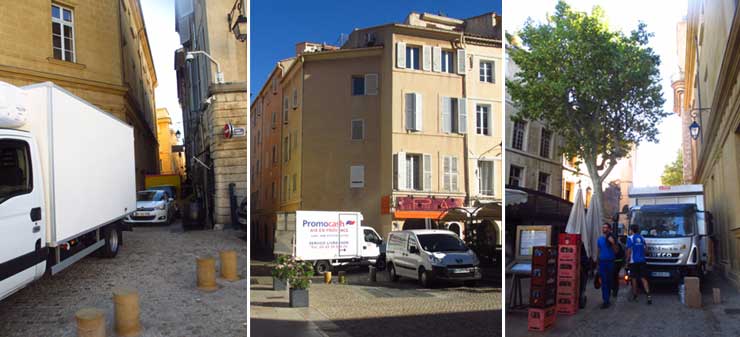 |
So, on to the neighbours? Wrong again. Aix is doing too well. The endless stream of tourists, that arrives year after year to witness the Provencal fairy tale, supplies every restaurant along the Cours Mirabeau with fresh cannon fodder for their credit card machines every day. |
|
'Fast food, fast money' seems to be the motto. In the early morning, the narrow alleyways that back onto the restaurants are blocked by the trucks of the various wholesalers. |
Boxes and boxes of battery chickens, factory meatballs and ready-made-flavours. Convenience products in professional jargon.
But who exactly benefits from this convenience? Not the customer, that's for sure. It's nasty, selling the cheapest possible product for a high a price as possible. And filling your pockets with that. It would make you angry.
Luckily it did. It did make people angry. |
The French government, the Conseil Général, has decided to combat this food piracy. Just like wine has got an AOC, a guarantee of origin, the government devised a special AOC for restaurants: 'Appellation fait maison'. Since July 2013, French restaurants are legally obliged to mention at the top of their menu cards whether or not their dishes have been prepared in their own kitchens using fresh ingredients. Failure to comply can lead to fines and even prison sentences. |
|
Restaurant owners are complaining: 'Everything will get more expensive, we will have to increase the prices, the customers will stay away, we'll lose our jobs, crisis.'
But parliament is unyielding: 'The quality of La Gastronomie Française must not be squandered.'
|
| Here and Now versus There and Then |
Be thankful! We are part of something extraordinary! We belong to the last specimens of a species on the brink of extinction: the homo loquens, speaking man. The generation after us will be more likely to communicate with a lit-up display screen than with another human being. |
Happiness can be defined as 'Being content with the present life circumstances'. These four guests at Les Deux Garçons since 1792 are visibly not. Even though they are sitting there together, all of them are two-timing by telephone. |
|
Yet again a warning to the chef: this is what happens when the food is insufferable; people start fiddling with their phones. |
When I was a boy, spending time alone with my father, he used to teach me things. Or play hide and seek with me, or take me to climb mountains.
Not this daddy. During the weekly dinner with his offspring, unavoidable because prescribed in the divorce rulings, he spends the night texting his new girlfriend. |
| But anyway, back to the meal |
Lunch is the most important moment of the day in France. A daily celebration that the majority of the French enjoy at a restaurant. At around 11 am people begin to look forward to the lunch hour (and productivity decreases concomitantly); at twelve on the dot any Frenchman worth his salt kisses the patron of his favourite restaurant on both cheeks and, rubbing his palms together, tucks in the napkin. |
|
Employees usually receive a lunch allowance of about 10 euro per day from their employer. That is why most establishments tend to serve a 'Menu du Jour', made up of daily specials, for that price. |
This is what you have to do when in Aix: feel free to walk up and down the Cours Mirabeau, perhaps have a cup of coffee and engage in a spot of people watching, but do NOT eat there. When you get to the end of the road, take a left to Place Richelme. Here you will find a lively food market where the little restaurants, hidden on all sorts of picturesque squares behind the market, stock up daily on fresh ingredients. |
Enjoy the market and then continue your expedition to those unsightly little places behind the square, where you'll be served an excellent Menu du Jour for a Prix d'Ami.
Bon Appétit. |
| |
Allez, Wholeharted Santé!
 |
|
| |
Share this Slurp! on Facebook
|
|
|
|
|
SlurpShop
|

|
|
|
|
